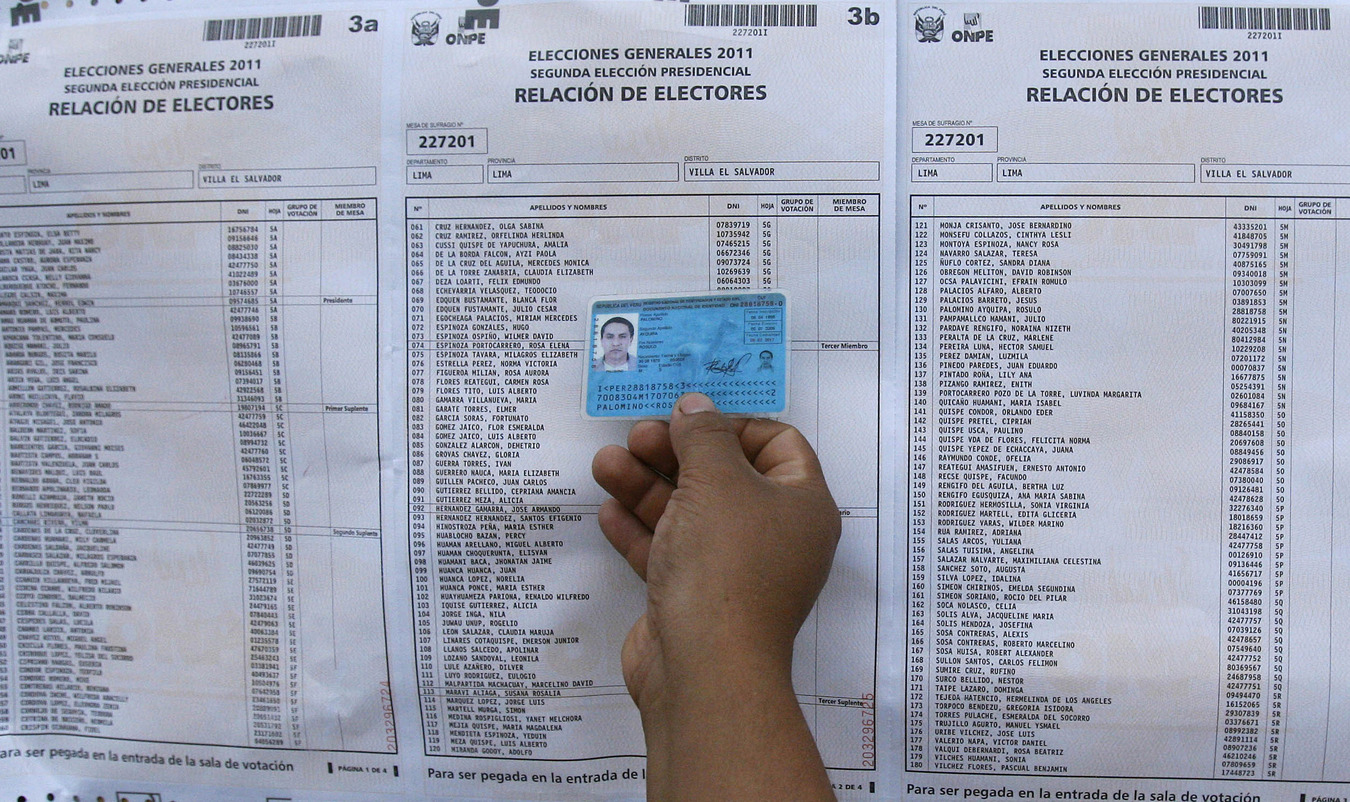Interview: President Oscar Arias
Interview: President Oscar Arias
In an exclusive interview with Americas Society and the Council of the Americas, Costa Rican President and Nobel Peace Prize winner Oscar Arias highlights the importance of reducing poverty and strengthening education, as well as the development of a technology-based economy, free trade, and environmental protection.
Synopsis:
Re-elected President of Costa Rica earlier this year, Oscar Arias, president from 1986 to 1990 and winner of the Nobel Peace Prize in 1987, recently spoke with the Americas Society and Council of the Americas to outline his vision for the next four years.
Committed to peace and the reduction of poverty, President Arias addresses Costa Rica’s efforts to develop a technology-based economy, environmental protection, and the Dominican Republic - Central America Free Trade Agreement (DR-CAFTA), among other topics.
Over the course of his presidency, President Arias hopes to follow in the direction of Chile with the negotiation of a wide range of free-trade agreements. President Arias provided further insight on the direction of Costa Rica at a public program hosted by the Council of the Americas on December 4, 2006, in Washington, DC.
The Interview:
AS/COA: Inaugurated president six months ago, you are the leader of a country vastly different from when you first assumed office in 1986 – for one, thanks to your efforts, civil war has ended in the region. What do you hope to list as the major accomplishments of your government at the conclusion of your term?
Arias: I hope this administration’s big successes will come in the areas of poverty reduction, environmental protection and debt relief-for-demilitarization. As Costa Rica races to become the first developed nation in Latin America, our biggest challenge as a society is the elimination of poverty. This administration will spare no effort to cut our poverty rate by 1% per year, through sustained economic growth and targeted government programs. We hope to spur growth through increased integration into the global economy, attracting greater foreign investment and new, high-paying jobs.
The administration’s budget will focus on programs to eliminate the conditions that perpetuate poverty, mainly a lack of educational opportunities. For example, one of my government’s first acts was to extend scholarships of up to $150 per month to students from our nation’s poorest families so they could stay in high school and off the streets.
As we grow economically, we are faced with the challenge of how to protect our increasingly fragile global environment. Global warming and heavy dependence on fossil fuels are two of the greatest threats facing humanity today. Just as fifty-eight years ago Costa Rica declared peace on the world, it is time for every nation on Earth to declare Peace with Nature. This administration will strongly advocate local, regional and global action on climate change, including full support for the Kyoto Protocol, renewable energy, and greater fuel efficiency for vehicles.
Our efforts will not be free of cost, but the alternative is bankruptcy, in a financial, environmental and moral sense. Finally, we will advocate for new conditions for debt relief that advance the causes of poverty elimination and environmental protection throughout the world.
The Costa Rica Consensus, as we hope it will be known, stresses the following: It is time that we create mechanisms to forgive the debt of developing nations that invest not only more and more in education, health and environmental protection, but also less and less in soldiers and weapons. It is time that the international financial community reward not only those who use resources prudently, as it has done till now, but also those who use resources morally. This is a strong complement to the Peace with Nature initiative, as militaries are some of the worst polluters in the world.
AS/COA: Implementation of the Dominican Republic - Central America Free Trade Agreement (DR-CAFTA) rests on congressional ratification of the various reforms agreed to during negotiations, some of which have faced both popular and congressional resistance. How do you plan on assuaging concerns and moving ahead with passage of the agreement and related bills in the near term?
Arias: A strong Congressional majority, two-thirds or more, has already expressed support for DR- CAFTA and the complementary agenda, both of which enjoy widespread popular support as well. Our Constitution requires that our Congress be thorough in evaluating these projects, cutting no corners in its deliberations, which can take time. We must and will continue the ratification process in full accordance with the law. As we continue the process, we are committed to making sure DR-CAFTA’s benefits accrue for all Costa Ricans. And so this administration is always open for dialogue about DR-CAFTA, the complementary agenda, and any other project. That is the spirit of democracy, the spirit of our country.
AS/COA: The fostering of technology-driven export markets is critical to advancing competitiveness and economic growth, and Costa Rica – a country with political stability, high literacy rates and investment incentives – has seen technology join eco-tourism as one of the main pillars of its economy. What are your plans for building on the technology component of the Costa Rican economy in the coming years?
Arias: We are happy that high-tech companies such as Boston Scientific, Hewlett Packard, Hospira, Proctor and Gamble, and last but not least, Intel, have decided to invest in Costa Rica, and there is far more potential for growth. The government plans to increase incentives, tax and otherwise, for high-tech investment from abroad. We also plan to increase our budget for research and development.
But more broadly, we will continue to attract high-tech investment only if companies continue to be drawn to our country by the quality of our human resources, our institutions and our social and political stability. This is why this administration is focusing on strengthening the foundation of our high-tech economy: education. More and more we understand that the educational catastrophe of today is the economic and echnological catastrophe of tomorrow. If Costa Rica’s youth are to thrive in knowledge-based industries, we must prepare them with the best training in science, math and foreign languages. That’s why our total investment in education this year will be up more than $272 million from last year, an increase of more than 25%. Over the next four years, we will push to increase spending on education from 6% to a full 8% of GDP.
AS/COA: Costa Rica – an observer since 2004 - is hoping to become a full member of the Asia-Pacific Economic Cooperation Forum (APEC) in 2007. Please discuss Costa Rica’s motivations for joining APEC and how membership may affect current trade and foreign direct investment flows.
Arias: Developing nations in Latin America face a stark choice: either we export our goods, or we will be forced to export our people. In order to export our goods, we need to secure access for our producers to foreign markets, and increase foreign direct investment, through trade agreements and partnerships. In this respect we hope to follow in the footsteps of Chile, which today has free trade agreements with the U.S., the E.U., all the Latin American nations, Canada, South Korea, New Zealand, Singapore, Brunei and China. Agreements with Malaysia, Japan and India are on the way. Consequently, according to the United Nations Economic Commission for Latin America and the Caribbean, Chile’s rate of poverty has fallen by no less than 20 percent. These results are too important not to imitate. .
AS/COA: A Nobel Peace Prize winner and founder of a highly respected non-governmental organization dedicated to promoting peace, you are a well-respected leader throughout the world. Over the next four years, what do you see as your role in the hemisphere? What changes would you like to see transpire?
Arias: Besides promoting the Costa Rica Consensus, Peace with Nature and open commercial relations within the hemisphere, this administration will throw its full support behind the Arms Trade Treaty (ATT). The ATT forbids the transfer of arms for atrocities, genocide, or crimes against humanity, as well as if there is clear indication that they will be used to disrupt sustainable development. It is a common-sense security measure initiated by eight Nobel Laureates in 1997 and carried on by groups such as Amnesty International, Oxfam and the Arias Foundation for Peace and Human Progress in San José. We have seen great progress toward global adoption of the treaty.
This October, the United Nations First Committee voted overwhelmingly to begin work on a comprehensive, legally-binding ATT. In fact, only one country in the entire world voted against beginning this work: the United States of America. That vote was neither in the best interests of the rest of the world nor in the U.S.’s own best interests—especially considering the chaos that an unregulated arms trade has helped create in Iraq. In general, we will continue to advocate for the Western Hemisphere to make a strong push toward militarization.
This year Latin American nations will spend roughly $25 billion dollars on their militaries, even though, with the exception of the war in Colombia, there are no militarized conflicts in the region. Meanwhile, a full third of Latin American children do not attend secondary school. These priorities are in dire need of readjustment. I will never stop believing that it is possible to solve these problems and bring a lasting peace to Latin America and the world. For peace starts with conviction, ends with cynicism, and endures through sacrifice. If we do not first believe peace is possible, we will not be willing to do the hard work necessary to achieve it. We have a lot of work to do, and there’s no time to lose.








